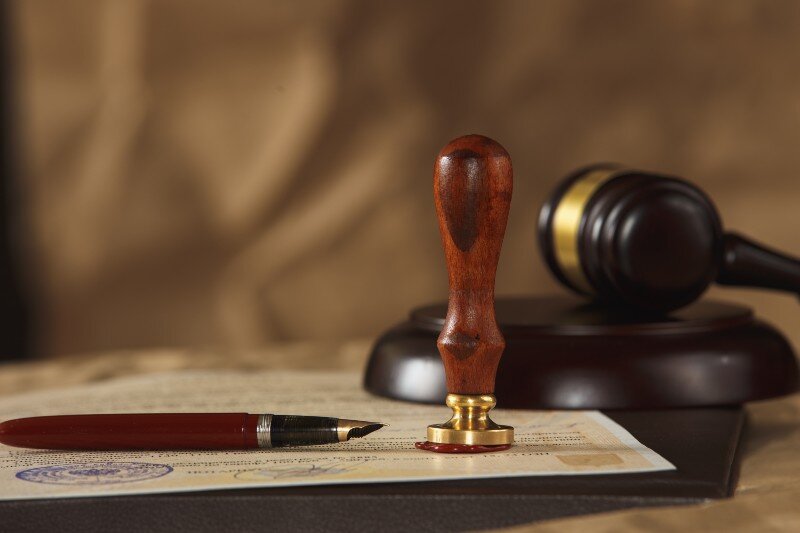
Suppose a homeowner passes away with or without a will. In that case, the executor of the estate must follow the probate process, which will determine what will be done with the real property if there are no family members with the right of survivorship.
Probate is a legal process that oversees that estate assets are disbursed fairly and according to the law. Estate planning requires the deceased person to appoint a personal representative to pay estate debts and liens and disburse inherited property to beneficiaries. When the decedent does not specify an executor, the probate court will choose one.
Selling a House in Probate
When the probate process for the sale of real estate occurs in North Carolina, it is usually because the decedent stated their wish to sell the house. The sale of probate property might be the preference of the beneficiaries.
Beneficiaries might be aware of what can go wrong when you inherit a house. In either case, the executor must follow the probate process before closing any real estate sales.
The executor can begin the sales process by contacting a realtor or a company that specializes in buying homes in probate. Negotiations can occur with the home buyer, but they can only complete the sale once the probate is done.
The executor must follow every law about the probate process. The sale of a house can be a complicated process while it’s in probate. You should consult with a probate lawyer to ensure that you are doing everything according to the estate laws in North Carolina.
Can You Sell a House in Probate?
You can sell a house in probate, but the decedent’s representative must follow the probate process. Sometimes, selling real estate is necessary to pay outstanding estate bills.
The executor must petition the probate court for permission to sell the house. They will have to disclose the asking price and the details and conditions of the sale. The court will determine if the deal is in the best interest of the beneficiaries.
Once the courts grant permission to sell the house, the executor can advertise the sale. The executor and interested parties can agree on a sale price but can only finalize the deal once there is a Grant of probate. The executor must document everything related to the sale and provide it to the probate court.
Once the probate court agrees, the closing can take place. The executor will deposit all proceeds from the sale of the house into the estate account. The priority is to pay all estate debts. The executor will then disburse the remaining money and assets to the beneficiaries.
What Is the Probate Process?
The probate process is a legal process that oversees the disbursement of a decedent’s assets. However, probate is not required for every situation.
North Carolina has a simplified process for smaller estates. You can fill out an Affidavit for Collection of Personal Property of Decedent if it has been thirty days since the person’s death. You must include a list of personal property that is at most $20 000 and does not include real estate, and it can be less than $30 000 if the surviving spouse inherits everything.
After you have filed the affidavit, you must present a certified copy anywhere that has custody of the property you are inheriting. The beneficiary can take possession of the property, and the organizations will complete the documents showing the transfer of ownership. If no one has started probate proceedings, the person who filed the affidavit must pay the estate’s debts.
North Carolina offers another simplified process called summary probate. When the beneficiary is the decedent’s surviving spouse, they can file a petition with the court along with the will. The court clerk can enter an order, and then no probate proceedings are necessary. The spouse can present a certified copy of this order and collect the personal property.
Probate is a long and time-consuming ordeal. The personal representative usually deals with the grief of losing a loved one while navigating a probate sale. A probate attorney can help guide you through the process to ensure that you do everything correctly.
The probate process ensures that the executor respects the estate laws. These laws are to protect the best interest of the estate and the beneficiaries. The probate court oversees all financial transactions and will ensure that financial decisions are made logically rather than emotionally.
You will begin the probate process in the county where the decedent lived. Executors must apply to the Clerk of Superior Court. The application must include the following:
- A copy of the decedent’s will.
- An inventory of the estate assets.
- A certified copy of the death certificate.
They must apply to be the executor of the estate.
The court will grant the executor the authority to manage the deceased person’s assets. In North Carolina, an executor can pay themselves from the estate for their service, which can be time-consuming and challenging. The court must approve any fees. Executors can also be compensated up to 5% of the estate’s value.
The executor is responsible for all assets of the deceased person. They must make an inventory and open an estate account where they deposit all of the money from the estate. Any amounts owing to the decedent must be deposited into the estate account. The personal representative will pay estate expenses and debts from this account.
A probate real estate sale may be necessary when life insurance does not cover estate debts. The executor must have court approval before they can sell real property. They should consult with a realtor when a house sale is involved. A real estate agent can estimate a sale price that reflects fair market value.

Probate Laws When Selling Your House
State laws outline the process executors must follow when an estate is in probate. The process is very similar to that of other states, but timelines may differ slightly.
The executor must apply to the court in the county where the deceased person lived. They must apply to act as the personal representative of the estate. The court must approve the application and provide documentation that the executor can manage the estate.
Once they have authority, the executor must inventory and protect all estate assets. They will need to provide a complete inventory of assets to the court.
The personal representative might have appraisals done when they have to sell assets to pay debts. They must document all estate transactions. When selling a house in probate, executors should seek legal advice from an estate attorney. Technically, you can accept an offer from cash home buyers in North Carolina or a promissory note from interested parties.
A home sale can only be finalized once the court confirms that the probate is finished. The probate judge will evaluate the estate paperwork to ensure that the executor follows the probate process. It is crucial that all transactions are transparent and clearly in the best interest of the estate.
The executor is responsible for filing the deceased person’s final tax return and paying all debts. The executor must settle any final tax bills. Once they pay all debts, they must disperse the remaining estate assets to the beneficiaries.
How To Sell a House in Probate
The executor should consult with an estate lawyer before attempting any property sale. They will guide you through the steps to make the home sale without problems. They may recommend selling to a real estate company if the house requires renovations. These companies will make a cash offer and can wait until the probate hearing.
The best way to attract potential buyers is to work with a realtor. Realtors have contacts that can speed up the process of selling. Consider selling to a real estate company that makes cash offers, so you don’t have the stress of selling on the real estate market. You will see advertisements such as “we sell a house fast in Concord” or “ we buy houses Charlotte.”
Typically, executors want to sell the property as quickly as possible to disburse the proceeds to the beneficiaries. They are not interested in haggling for the best sale price. An executor’s duties end when they distribute the estate assets, so their goal is to sell the house as quickly as possible at a fair market price.
There are times when an executor is also a beneficiary so getting the best price for a house is in their best interest. If you’re an executor there are some advantages of selling a house by yourself.
Potential buyers can make an offer, and the executor can accept it, but the sale can only be finalized once a court hearing results in a Grant of Probate. The executor must document all details and conditions of the sale. Once this Grant is official, the house can be sold, and the deed can be changed.
The executor must deposit all proceeds into the estate account. They will pay all debts, and then they can disperse the remaining assets to the beneficiaries.
Conclusion Paragraph
Losing a loved one is a devastating loss. Dealing with that loved one’s final wishes can be challenging. The executor must follow their will’s instructions and disperse their assets as they wanted. It is possible to sell a home in probate, and sometimes it is necessary. The critical thing to remember is that there is a specific process that you must follow.
